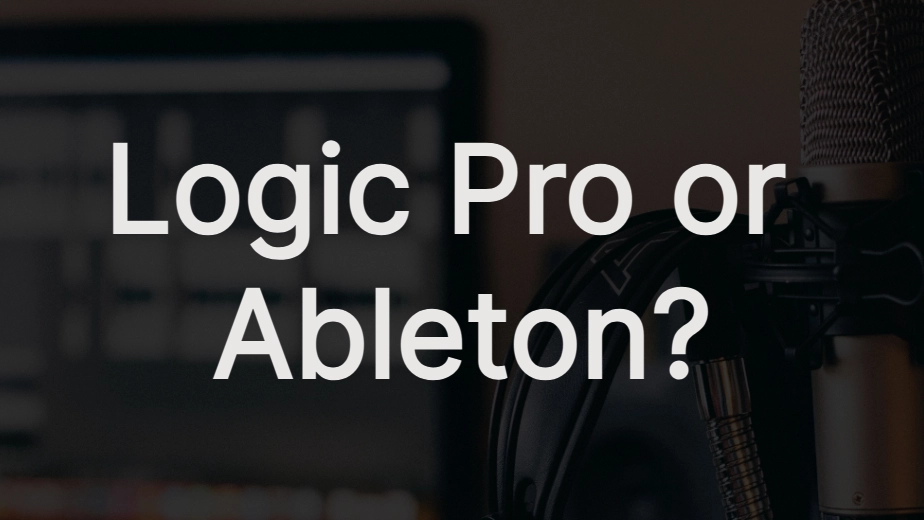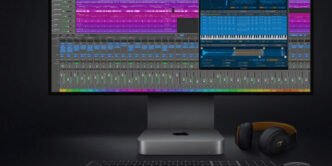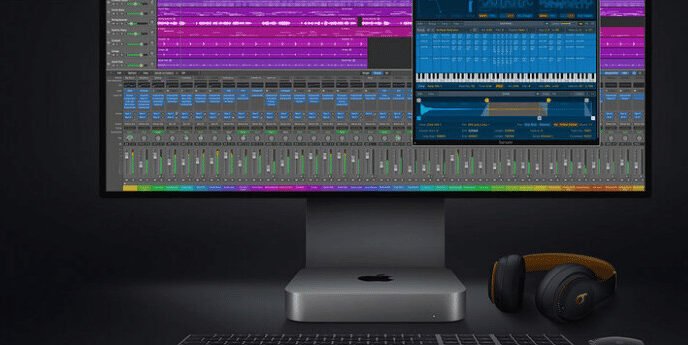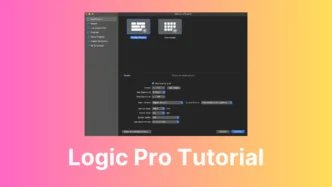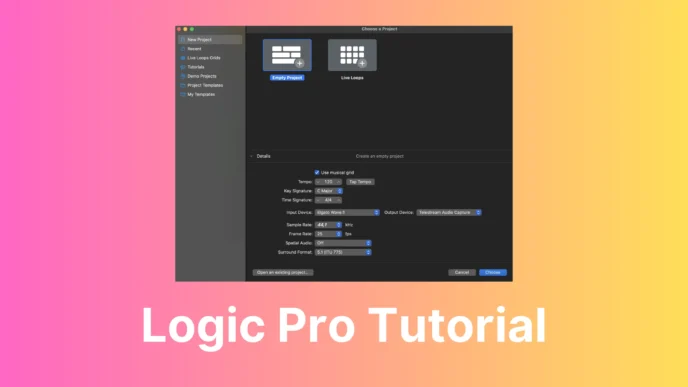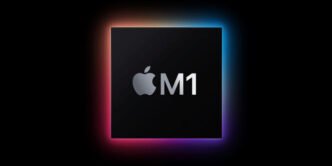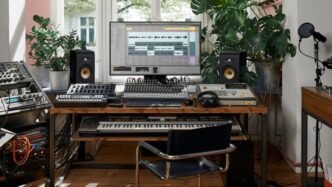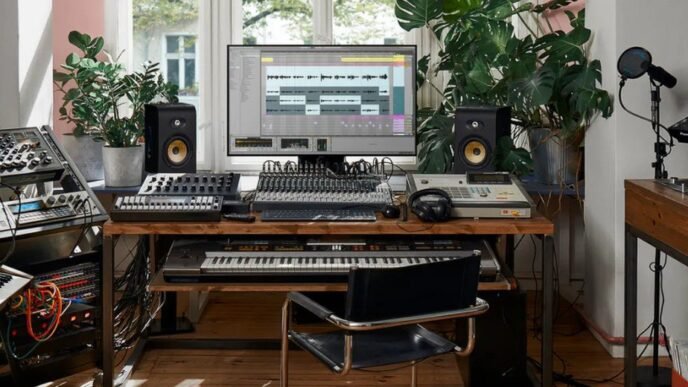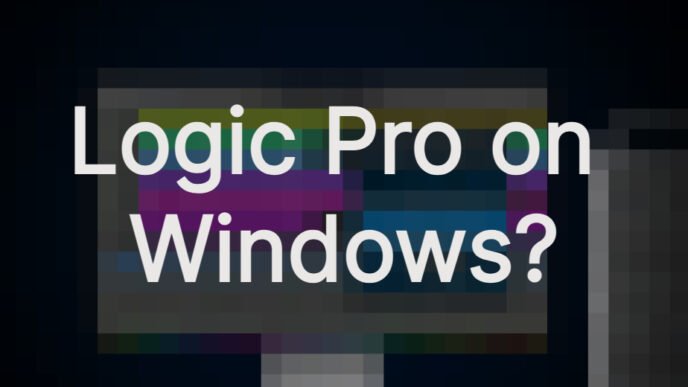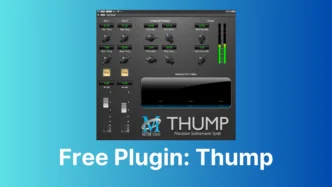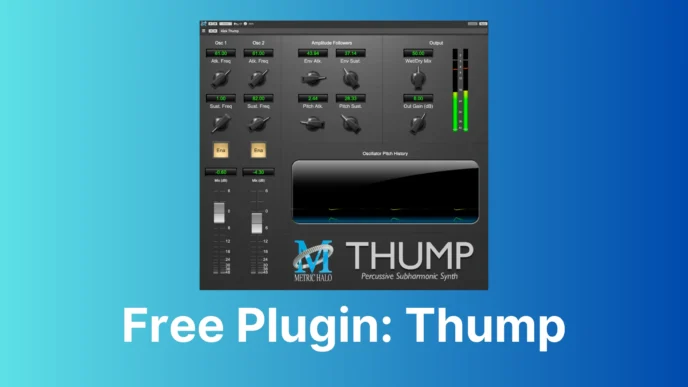For music producers and enthusiasts, choosing the right digital audio workstation (DAW) is a pivotal decision that significantly impacts the creative process. This is why I wrote this blog post about Logic Pro or Ableton Live and a comparison between the biggest and most important differences.
Two titans in the music production realm, Logic Pro and Ableton Live stand out as popular choices. Both DAWs work on the most used operating systems, Windows & MacOS.
In this comprehensive comparison, we’ll dissect the strengths and nuances of Logic Pro and Ableton Live to help you make an informed decision based on your unique needs.
Logic Pro – The Mac Maestro
Logic Pro, developed by Apple, has long been synonymous with professional music production on the Mac platform.
Known for its expansive set of virtual instruments, robust recording capabilities, and seamless integration with other Apple products, Logic Pro has been a go-to choice for many musicians.

Ableton Live – The Live Performance Powerhouse
Ableton Live, on the other hand, has carved its niche as a versatile DAW with a strong focus on live performance.
Loved by electronic music producers and DJs, Ableton Live boasts a unique Session View for non-linear, improvisational music creation, making it a favorite for stage setups and live shows.

Interface and Workflow
- Logic Pro: Logic Pro presents a sleek and user-friendly interface tailored for Mac users. Its workflow is intuitive, making it accessible for both beginners and seasoned professionals. The arrangement and mixing features are seamlessly integrated, allowing for a fluid creative process.
- Ableton Live: Ableton Live’s interface is designed for efficiency, with a clean and minimalist layout. The Session View sets it apart, providing a grid-based environment for launching clips and loops. Ableton’s interface shines in live situations, emphasizing quick and dynamic music creation.
Recording and Editing Capabilities
- Logic Pro: Logic Pro excels in traditional recording and editing, offering a comprehensive set of tools for MIDI and audio recording. Its Flex Time and Flex Pitch features allow for precise manipulation of recorded audio, ensuring a polished final product.
- Ableton Live: Ableton Live is renowned for its real-time audio manipulation capabilities. Its non-destructive editing and flexible arrangement make it a powerhouse for electronic music production. While not as feature-rich in traditional recording as Logic Pro, it excels in dynamic and experimental workflows.
Virtual Instruments and Sound Libraries
- Logic Pro: Logic Pro boasts an extensive library of virtual instruments, including realistic emulations of classic synthesizers and orchestral instruments. The Alchemy synth and Drummer feature enhance the creative possibilities, providing a rich sonic palette. Logic Pro is using Audio Unit plugins (.AU-files) and not VST which is the standard for plugins.
- Ableton Live: Ableton Live’s strength lies in its versatile sound design capabilities. While it may not have the vast built-in library of Logic Pro, it compensates with its flexible Instrument and Effect Racks, encouraging users to craft unique sounds from scratch. Ableton Live mainly uses VST plugins but Audio Unit plugins are supported as well.
Performance and Live Features
- Logic Pro: While Logic Pro is a robust studio tool, it is not as tailored for live performances as Ableton Live. Its strengths lie in meticulous studio production, mixing, and mastering.
- Ableton Live: Ableton Live shines in live situations with its Session View, allowing for on-the-fly remixing and improvisation. Its clip-based workflow and dedicated performance features make it the DAW of choice for many electronic music performers.
In the Logic Pro vs. Ableton Live showdown, the choice ultimately depends on your specific needs and preferences.
If you’re a Mac user seeking a comprehensive studio tool with an extensive instrument library, Logic Pro might be your ideal companion.
If you’re an Ableton user and feel lost when switching to Logic, this course may help you out.
On the other hand, if live performances and experimental electronic music creation are your focus, Ableton Live’s innovative features could be the perfect match.
Whatever your choice, both DAWs offer a world of possibilities for unleashing your musical creativity.

